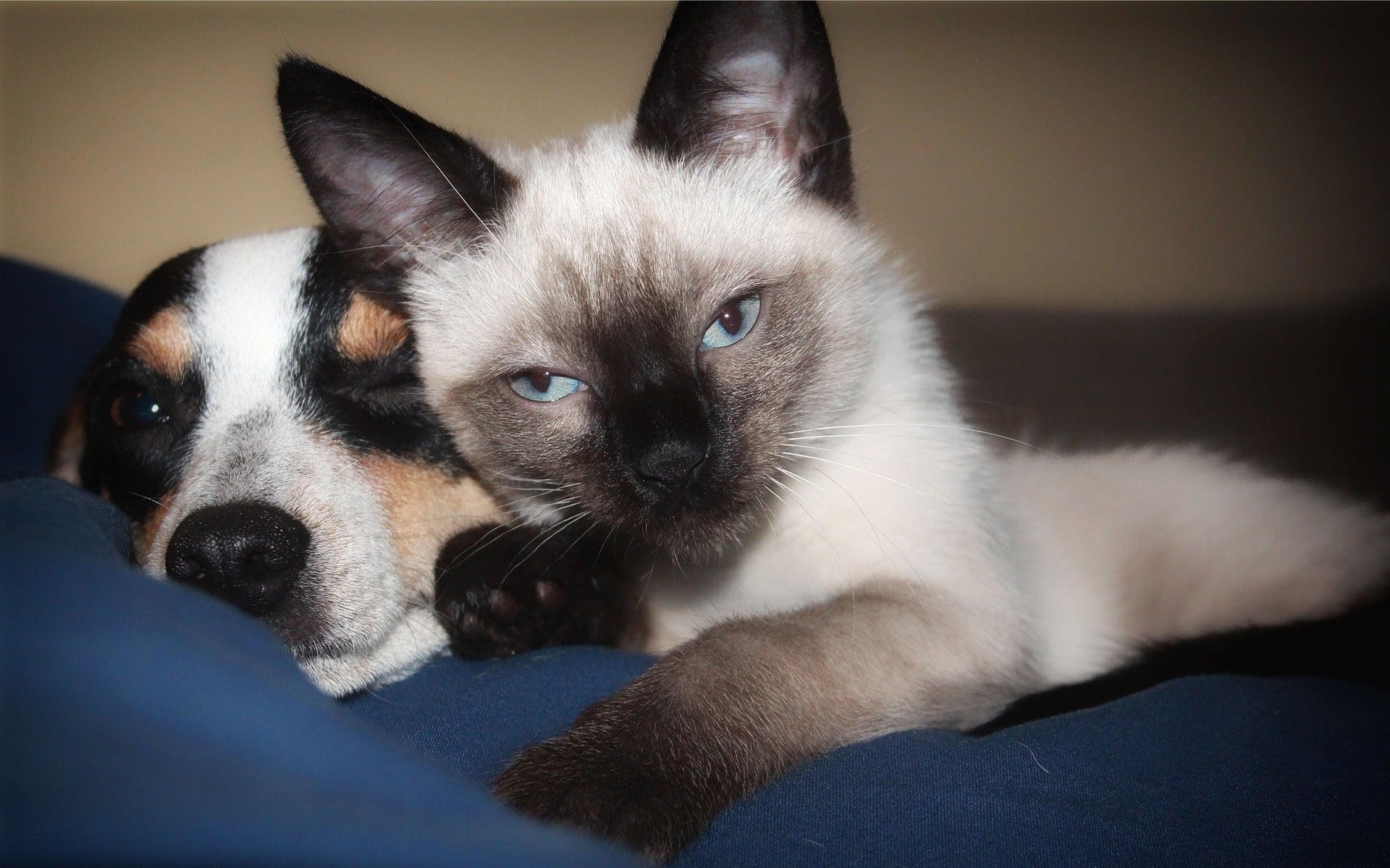Did you know that fiber-rich foods like CocoTherapy Coconut Chips produce short-chain fatty acids (SCFAs) which feed beneficial gut bacteria? In fact, studies show that dietary fiber can support digestive disorders including constipation, diarrhea, colitis, and inflammatory bowel diseases.
In this post, we'll take a look at what dietary fiber is and explain how it helps support digestive disorders. We'll also explain why coconut makes an excellent source of fiber in your pet's diet.
What Is Dietary Fiber?
Dietary fiber is a plant-based nutrient and a type of carbohydrate. It is resistant to digestive enzymes in the intestinal tract, so it passes through the body relatively intact.
There are two main types of fiber: soluble and insoluble fiber. Solubility refers to the fiber’s ability to dissolve in water, where soluble fiber dissolves in water and insoluble fiber remains as discrete particles. Soluble fiber, retains water and forms a gel-like substance in the colon. It increases transit time through the gut, but slows down digestion and nutrient absorption from the stomach and intestine. Soluble fiber is beneficial for obese or diabetic patients as it promotes satiety and a slower rate of digestion.
Insoluble fiber, which does not dissolve in water, is left intact and undigested. Insoluble fiber slows down the passage of food through the stomach and intestine, but increase the rate of absorption and digestion. Because of this, it adds bulk to the stool and can help relieve constipation.
Although dietary fiber has no direct nutritional value, it adds bulk and water in the intestinal contents and has an important role to play in supporting your pet's digestive system. Dietary fiber in pet food comes from a variety of sources. Some of the most common include beet pulp, bran, psyllium husk, grain hulls, flaxseed, and coconut fiber.
How Does Dietary Fiber Support Your Pet's Digestive Health?
Dietary fiber is essential for keeping your pet's digestive tract functioning normally. It helps alleviate constipation in pets by increasing water retention in the intestines and softening the stool. At the same time, it adds bulk to the stool and increases the propulsive movements of the intestine.
Fiber also normalizes intestinal transit time in diarrheic animals, increasing water absorption from the colon so less water is lost in the stool. For this reason, fiber-rich diets can be helpful for treating diarrhea and digestive disorders such as colitis and inflammatory bowel disease (IBD).
Another way in which fiber keeps your pet healthy is by supporting their gut microbiome. The gut is responsible for three main functions: digesting food, absorbing nutrients from food and supplements, and preventing toxins from entering the bloodstream. In order to function properly, it relies on a complex ecosystem of bacteria known as the microbiome.
And since more than 80% of the immune system resides in the gut, a balanced microbiome is directly linked to your pet's ability to fight disease and remain healthy throughout their lifetime.
Fibers vary in rate and extent of fermentation. When fibers are fermented, they produce short chain fatty acids (SCFAs) in the gut. These SCFAs are used as a substrate, acting as prebiotics to feed gut microbiota. These fatty acids have anti-inflammatory properties and are the main source of energy for the cells in the colon. According to an article from Healthline, SCFAs "may reduce the risk of inflammatory diseases, type 2 diabetes, obesity, heart disease and other conditions." They are also known to prevent overgrowth of bad bacteria and promote healing in the gastrointestinal tract.
As an added bonus, dietary fiber can help your pet maintain a healthy weight. Calories provided by fiber are very different from a nutritional standpoint than those provided by regular carbohydrates or protein, and they’re treated differently by dieticians and weight loss experts.
Fiber aids in digestion, and actually uses energy when it comes to breaking down and processing its dense structure. That's why people who are dieting are often encouraged to eat high-fiber foods in order to actually "subtract" calories from their daily totals. In addition, fiber adds bulk to your pet's food without adding excess calories. This results in a longer lasting feeling of satiety, decreasing the likelihood of overeating and weight gain.

Why Coconut Is an Excellent Source of Dietary Fiber
Coconut has one of the highest percentages of fiber among all plant foods. Because of this, it makes an excellent source of dietary fiber. In this final section of the post, we'll take a look at the benefits of coconut fiber and explain how to use it as a fiber source to supplement your pet's diet.
Coconut fiber has potent anti-inflammatory properties thanks to its medium-chain fatty acids (MCFAs). It acts as food for beneficial gut bacteria, increases SCFAs in the gut, and prevents and relieves symptoms associated with Crohn's disease, irritable bowel syndrome (IBS), colitis, and other digestive disorders. It also helps control your pet's weight and keeps them feeling satisfied for longer.
Wondering how to introduce coconut fiber to your pet's diet? Don't worry, we've got you covered! CocoTherapy Coconut Chips provide a rich source of dietary fiber. Simply add them to your pet's food to take advantage of the fantastic health benefits associated with a high-fiber diet.
Our CocoTherapy Coconut Chips are made from dehydrated organic coconut meat. The dried coconut flakes are made of pure, 100% organic coconut meat, with absolutely NO sugars, salt, preservatives, or chemicals added.
Our organic coconut chips are raw and dehydrated slowly at a low temperature, 98.6° F (37° C). This keeps the nutrients intact, resulting in a raw coconut that tastes fresh, has a wonderful texture, and contains all the rich nutrients found in fresh coconuts.
And did we mention that our chips are 100% human-grade? That means they're great for pets AND people! Bake with them, add them to your smoothies and cereal, or eat them right out of the bag as a wholesome snack. For your pets, give as a treat throughout the day, or mix into food as a fiber supplement.
If you have a special feline friend in your life, we recommend CocoTherapy Hairball Plus. It's made with one simple ingredient – high-fiber organic coconut, and can help reduce – and even eliminate – hairballs. It helps your cat pass hairballs more easily by adding moisture and bulk to their stool, and it's great for overall digestive health!
That's it for today's post. We hope you enjoyed reading about the amazing digestive health benefits of dietary fiber! Head on over to our website to learn more about CocoTherapy Coconut Chips and CocoTherapy Hairball Plus.




